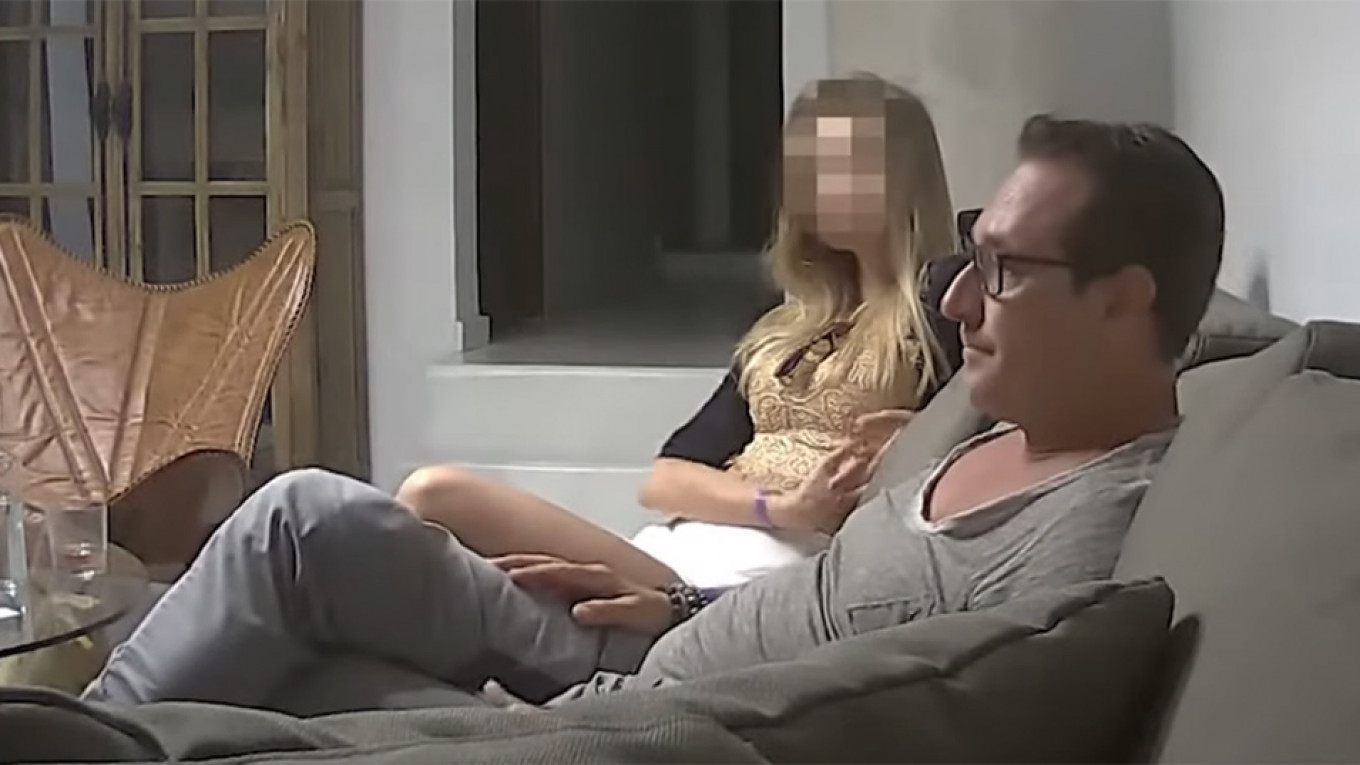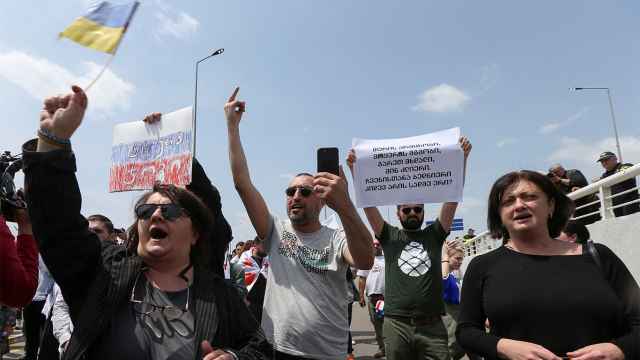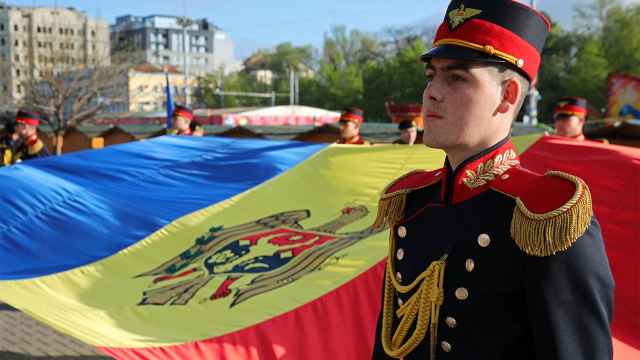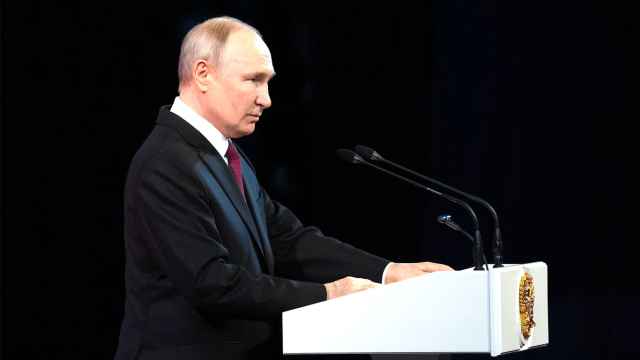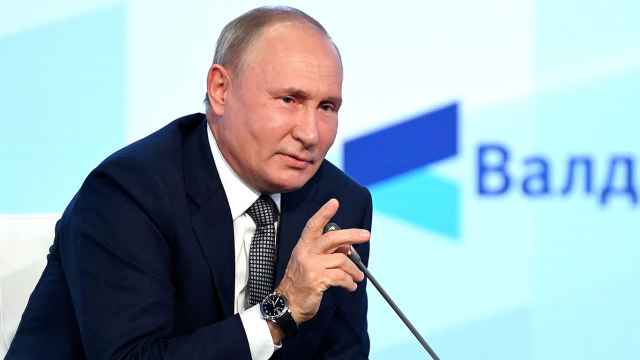Austria faces snap elections after a mysterious video was released showing vice chancellor Heinz-Christian Strache of the far-right Freedom Party promising government contracts to an alleged Russian in return for support.
Chancellor Sebastian Kurz has dissolved his right-wing coalition with the Freedom Party, and while much is unclear about the case, it has once again raised the question of Moscow's assiduous cultivation of populists and extremists in the West.
However, comfortable assumptions that this demonstrates that extremism and corruption are somehow malign Russian exports are premature.
First of all, while there can be no doubt that Moscow enthusiastically supports populists, extremists and demagogues of both left and right (more often with media hype and political credibility than much hard cash) it cannot simply create them.
The Freedom Party in Austria, the Lega and Five Stars in Italy, the Brexit Party, Alternative for Germany and so forth all have their roots in the generalized legitimacy crisis gripping the West, not Russian subterfuge.
By failing to modernize our political systems, by letting constituencies come to feel left out and overlooked, by allowing the narratives of globalization, migration and harmonization to be hijacked and defined by the populists, the mainstream has shaped its enemies, empowered them, and handed them to Moscow or any other foreign backers — from Steve Bannon to Xi Jinping — willing to stroke their egos and back their campaigns.
Likewise, while it has become fashionable in some circles to assert that “corruption is the new communism” — in other words, that the world can be divided between the “kleptocratic East” and the “liberal West”, and that countries such as Russia seek to “export corruption” abroad — this is evidently also a home-grown problem.
No one tied Strache to a chair and forced him to listen to the Russian's pitch.
Measures such as Transparency International's Corruption Perceptions Index, which proudly places countries such as Denmark, Sweden and Switzerland at the top, Afghanistan, Guinea Bissau and Somalia towards the bottom, contribute to a misleading picture of a world divided into the honest and the corrupt.
Yet where does much of the grand corruption across the world move and end up? In the safe, law-abiding and prosperous jurisdictions of the West, once suitable laundered.
As we saw recently when Danske Bank and Swedbank were implicated in a €135 billion money laundering scandal, corruption is not just a global challenge, in many ways it is another way in which the rich countries of the north extract assets from the poorer south and profit from the plunder.
In the Austrian case, a woman purporting to be the niece of a Russian oligarch was secretly filmed offering to invest €250 million in Austria and support the Freedom Party and even buy a 50 percent stake in the critical newspaper Kronen Zeitung.
Strache suggested lucrative road-building contracts could be channeled her way in return, offered kompromat on Chancellor Kurz's alleged drug-and-sex orgies, and said that if a newly-supportive media environment brought his Freedom Party to “spot number one,” “then we can talk about everything.”
In Europe, as in North America, the real threat comes from a political and economic elite that too often has become consumed by greed, regards public office as a route to private gain, and thinks that it is beyond the law.
These venal opportunists are for hire. In those circumstances, why ever would Moscow not take full advantage of this?
Thirdly, though, we should be careful of assuming that “Russian” equals “Kremlin agent.” As of writing, the circumstances of the filming of the video and its release to two German newspapers are still unclear.
Was this a set-up by political rivals or even an intelligence service worried about the presence of a populist ultranationalist party in the Austrian government and eager to see it broken? If so, perhaps the current Estonian coalition containing the equally toxic EKRE party would be worth watching.
It is also interesting that it came just as Italian Interior Minister Matteo Salvini was holding a rally in Milan precisely in a bid to set up what could almost be considered a European “Nationalist International.”
If this was actually an overture from the Kremlin, would it have been done so clumsily and brazenly? Perhaps. Certainly, the Freedom Party has a close relationship with the United Russia bloc.
But at least as likely, is that if the woman was indeed Russian (and Strache suggested she was Latvian), that she was acting in her own or another's interests in the hope of making a connection and compromising Strache in a manner that could then be proffered to the Kremlin.
From relative innocents such as Maria Butina, the gun enthusiast now sitting in a U.S. prison, to much more significant figures such as oligarch Oleg Deripaska, Russian individuals seek to develop contacts and influence Westerners because they are political entrepreneurs, not agents on a mission.
This model of an “adhocracy” often works well, mobilizing the ambitions and imaginations of all kinds of Russians without the need for up-front outlays or grand strategies from the Kremlin.
However, it can also lead to amateurishness and counter productivity. If that was what was behind this bizarre case, then just as the rise of corruption and populism in the West are blights of our own making, the collapse of an Austrian government that was strikingly favorable for Moscow must count as a terrible own goal for the Kremlin.
A Message from The Moscow Times:
Dear readers,
We are facing unprecedented challenges. Russia's Prosecutor General's Office has designated The Moscow Times as an "undesirable" organization, criminalizing our work and putting our staff at risk of prosecution. This follows our earlier unjust labeling as a "foreign agent."
These actions are direct attempts to silence independent journalism in Russia. The authorities claim our work "discredits the decisions of the Russian leadership." We see things differently: we strive to provide accurate, unbiased reporting on Russia.
We, the journalists of The Moscow Times, refuse to be silenced. But to continue our work, we need your help.
Your support, no matter how small, makes a world of difference. If you can, please support us monthly starting from just $2. It's quick to set up, and every contribution makes a significant impact.
By supporting The Moscow Times, you're defending open, independent journalism in the face of repression. Thank you for standing with us.
Remind me later.



